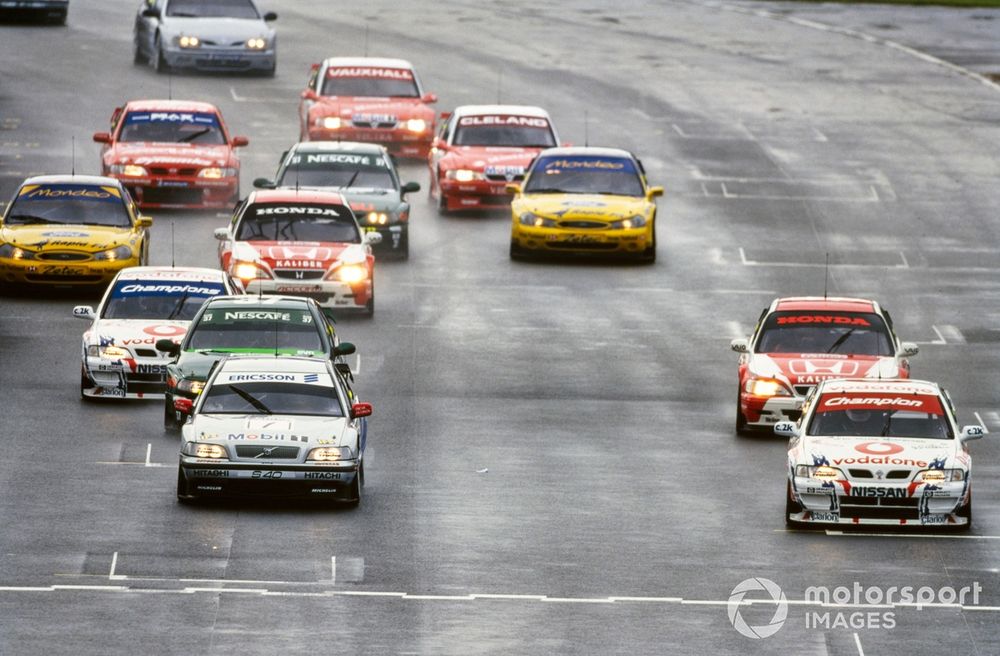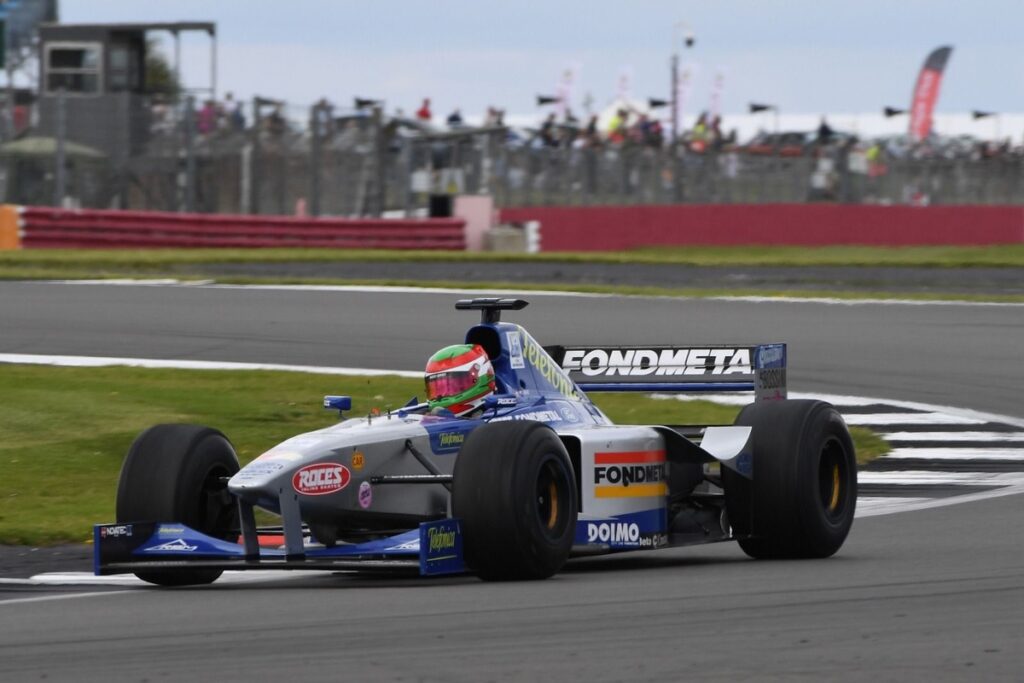Cars produced between 1991 and 2000 will be eligible for competition in historic events from next year, following an adjustment to the FIA’s International Sporting Code.
It was announced following today’s meeting of the FIA World Motor Sport Council that a tweak to the ISC’s Appendix K, which covers historic racing, will allow cars built during the 1990s and following the turn of the new millennium to be able to carry Historic Technical Passports that are required for eligibility in FIA-run championships.
The governing body has stated that it will conduct workshops in early 2025 to assist the owners of newly-eligible historic cars with applications for the required documentation to allow the cars to race.
Further announcements are set to follow, the FIA has pledged.
F1 cars from the 3.5-litre era into the early years of the V10’s domination will notably be able to race, having previously only been approved for demonstration purposes.
Cars produced during the glory years of touring car racing’s fabled Super Touring era will qualify, as will cars built during the pinnacle of Formula 3000’s open-make era that concluded in 1995, and its first two single-make Lola chassis from 1996 and 1999.
Among the rally cars now eligible for historic competition are those from the early years of the World Rally Championship regulations that began in 1997, as well as the Group A era that preceded it, while revered sportscars including prototypes and GT cars that raced in the Le Mans 24 Hours and FIA GT championship may also return to racing.
Tarso Marques (BRA) DAMS Reynard 95D leads the field into the first corner on the way to his first ever Formula 3000 victory.
Photo by: Sutton Images
Certain cars from the era already have series in which to compete.
Group C and IMSA GTP machinery from 1982 to 1993 will be eligible for the newly-created Masters Le Mans 80+ category organised by Masters Historic Racing next year.
The F1 ’90s Time Attack Mediterranean Challenge was set up this year in France for F1 cars built between 1986-2000 and 1985-2000 F3000 machinery.
Numerous club-level categories for Super Touring machinery have been organised, but have often struggled for entries due to the cost of running cars that as the era progressed used increasingly bespoke components.

Laurent Aïello, Vodafone Nissan Racing, Nissan Primera GT, leads Rickard Rydell, Volvo S40 Racing, Volvo S40, Jason Plato, Nescafé Blend 37 Williams Renault, Renault Laguna, and Peter Kox, Team Honda Sport, Honda Accord, at the start of the race.
Photo by: Malcolm Griffiths
Read the full article here

